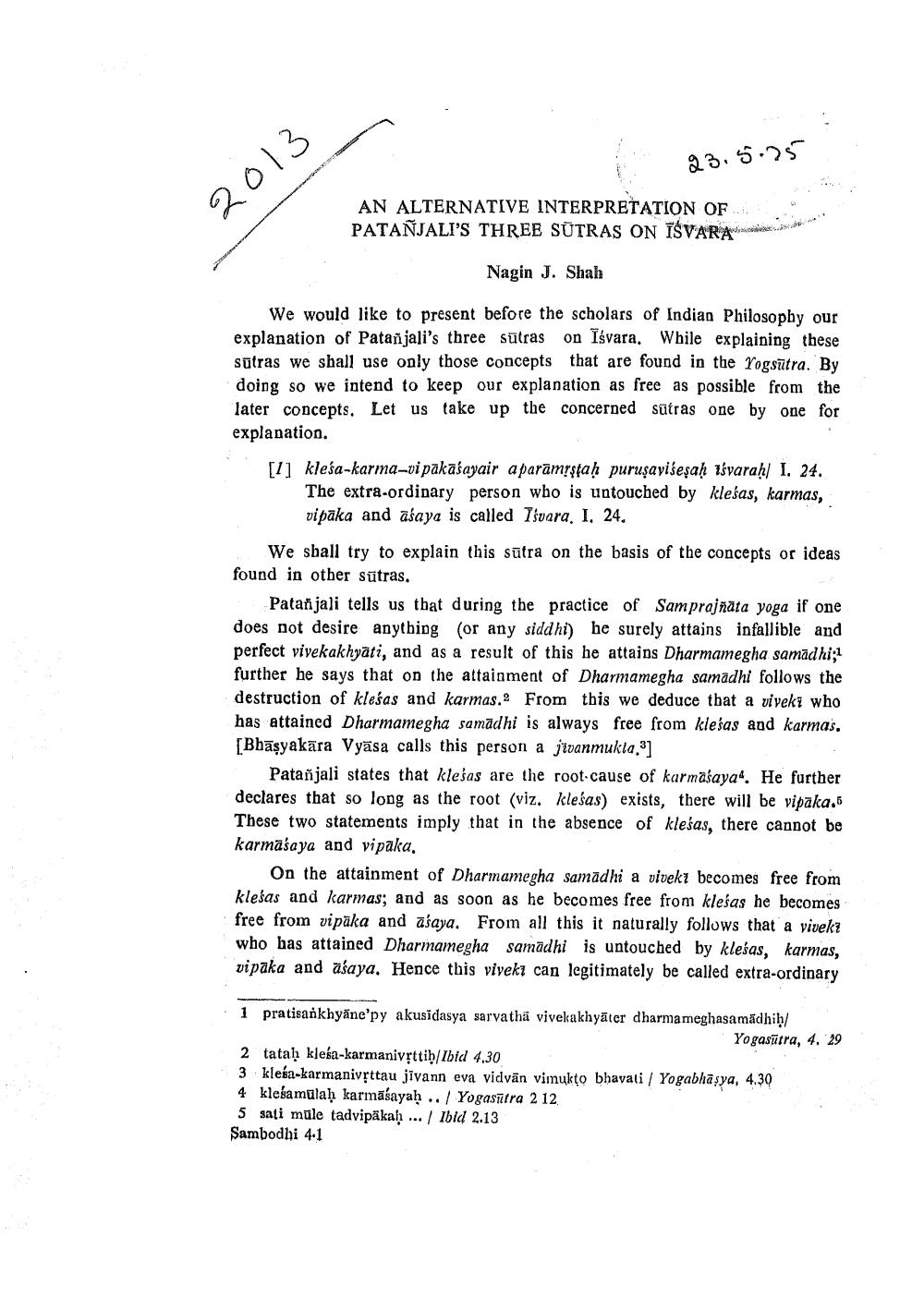Book Title: Sambodhi 1975 Vol 04 Author(s): Dalsukh Malvania, H C Bhayani Publisher: L D Indology Ahmedabad View full book textPage 3
________________ 23.5.255 2013 AN ALTERNATIVE INTERPRETATION OF PATANJALI'S THREE SUTRAS ON ISVARA N OR Nagin J. Shah We would like to present before the scholars of Indian Philosophy our explanation of Patañjali's three sütras on Isvara. While explaining these sutras we shall use only those concepts that are found in the Yogsūtra. By doing so we intend to keep our explanation as free as possible from the later concepts. Let us take up the concerned sutras one by one for explanation. [1] klesa-karma-vi pakāśayair aparāmıştaḥ puruşayiśeșah zśvarah I. 24. The extra-ordinary person who is untouched by klešas, karmas, vipaka and aśaya is called Tsvara. I. 24. We sball try to explain this sūtra on the basis of the concepts or ideas found in other sūtras. Patanjali tells us that during the practice of Samprajñāta yoga if one does not desire anything (or any siddhi) be surely attains infallible and perfect vivekakhyāti, and as a result of this he attains Dharmamegha samadhi; further he says that on the attainment of Dharmamegha samadhi follows the destruction of klešas and karmas.2 From this we deduce that a viveki who has attained Dharmamegha samadhi is always free from klešas and karmas. [Bhāșyakāra Vyasa calls this person a jivanmukla.] Patañjali states that klešas are the root cause of karmaśaya4. He further declares that so long as the root (viz. klešas) exists, there will be vipaka. These two statements imply that in the absence of klešas, there cannot be karmaśaya and vipaka, On the attainment of Dharmamegha samadhi a vivekı becomes free from klešas and karmas; and as soon as he becomes free from klešas he becomes free from vipäka and asaya. From all this it naturally follows that a viveka who has attained Dharmamegha samadhi is untouched by klešas, karmas, vipaka and āśaya. Hence this vivekı can legitimately be called extra-ordinary • 1 pratisankhyāne'py akusidasya sarvatha vivekakhyāter dharmameghasamādhih/ Yogasūtra, 4. 29 2 tatah kleba-karmanivýttiḥ/Ibid 4.30 3 klesa-karmanivrttau jivann eva vidvän vimukto bhavati / Yogabhāsya, 4.30 4 klešamulah karmasayah.. / Yogasūtra 2 12 5 sati müle tadvipäkah ... Ibid 2.13 Sambodhi 4.1Page Navigation
1 2 3 4 5 6 7 8 9 10 11 12 13 14 15 16 17 18 19 20 21 22 23 24 25 26 27 28 29 30 31 32 ... 427
